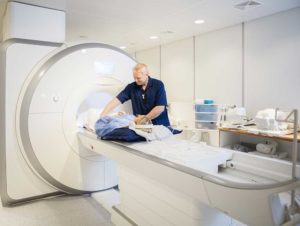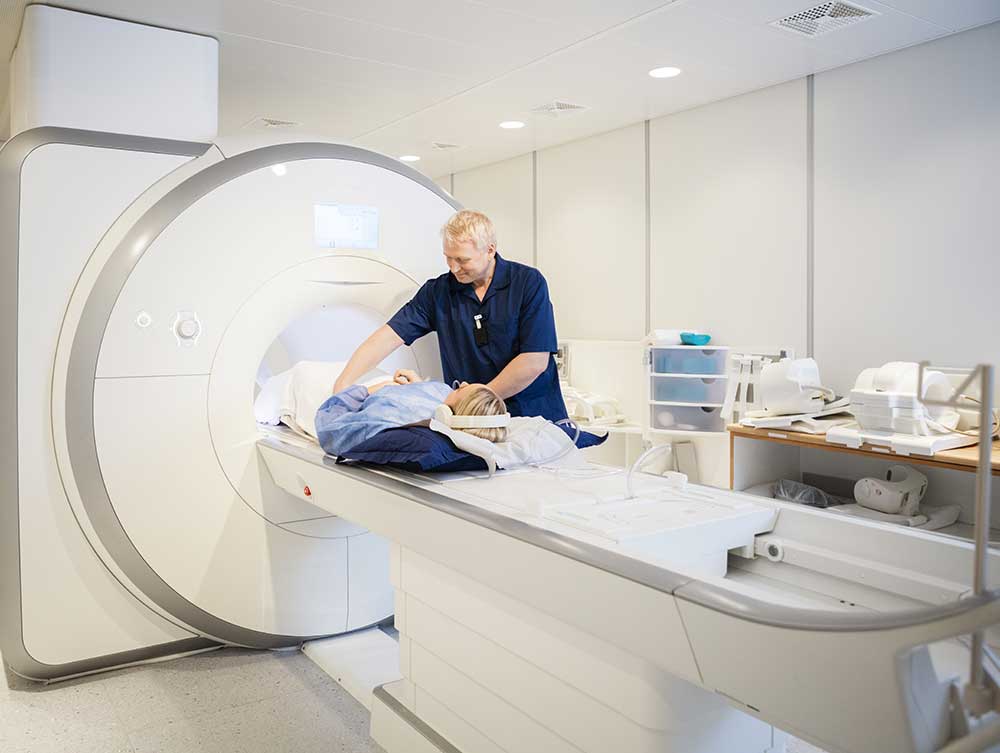Disclaimer: The information on our website is provided for general information purposes only. We make no representations or warranties of any kind, express or implied, about the completeness, accuracy, reliability, suitability or availability with respect to the website or the information contained on our website for any purpose. Any reliance on such information is therefore strictly at your own risk and we are not liable for any damages or losses arising out of or resulting from your reliance on any information contained on our website.
A nuclear medicine technologist prepares radioactive drugs and administers them to patients. The goal is to create images that cause abnormal areas of the body to appear different from normal images. Additionally, they operate the equipment that creates these images in a patient’s body. They are also are mainly employed in hospitals, while some work in diagnostic laboratories, physicians’ offices, or imaging clinics. Next, watch a video to learn what a nuclear medicine technologist does.
How to Become a Nuclear Medicine Technologist

Nuclear medicine technologists need an associate’s degree from an accredited medicine technology program. However, holding a bachelor’s degree is becoming more common. Some people become a nuclear medicine technologist by first attaining a degree in a related health field (such as nursing or radiologic technology) and then they complete a 12-month certification program.
Nuclear medicine technology programs typically have courses in physics, radioactive drugs, human anatomy and physiology, chemistry, and computer science. Clinical experience is also included in these programs which are supervised under a surgeon or physician that specializes in nuclear medicine. Some states require certification or certification may be required by an employer. High school students interested in this occupation should take courses in science and math.
Job Description of a Nuclear Medicine Technologist
The duties of a nuclear medicine technologist is to answer questions and explain procedures to the patient. Additionally, they must follow safety procedures to protect the patient and themselves from too much radiation. Furthermore, they examine all equipment and machines to be sure they are safe and working properly. These techs also prepare and administer radioactive drugs to the patient and monitor the patient for any unusual reaction to the drugs.
Nuclear medicine technologists must operate the equipment that creates the images of the targeted areas of the patient’s body. Their job would require them to follow radiation safety and disposal procedures. Additionally, they must keep detailed records of the patient’s procedures.
Nuclear Medicine Technologist Career Video Transcript
The work of nuclear medicine technologists revolves around tiny particles of matter called radionuclides. The particles are used in solutions that the technologist prepares and administers to patients, under the direction of a doctor. The technologist also operates equipment that tracks these particles as they move through organs or different parts of the body, and records images of how the particles appear. The resulting images can be used to diagnose a patient’s condition and to guide a course of treatment.
Because they are working with radioactive materials, nuclear medicine technologists must follow strict safety procedures, including wearing a device to detect unintended exposure to radiation. They also explain test procedures to patients, so good communication skills are important. Nuclear medicine technologists most often work in hospitals; a few work in laboratories. Most work full-time, possibly on nights and weekends when needed.
An associate’s or bachelor’s degree in nuclear medicine technology is usually required to enter this field. Some states require licensure, and some employers require certification. Often, these technologists seek additional training to handle other kinds of medical imaging procedures. In every case, they combine knowledge and precision with technology—to help the patient get the best possible outcome.
Article Citations
Bureau of Labor Statistics, U.S. Department of Labor, Occupational Outlook Handbook, Nuclear Medicine Technologists.
National Center for O*NET Development. 29-2033.00. O*NET OnLine.

